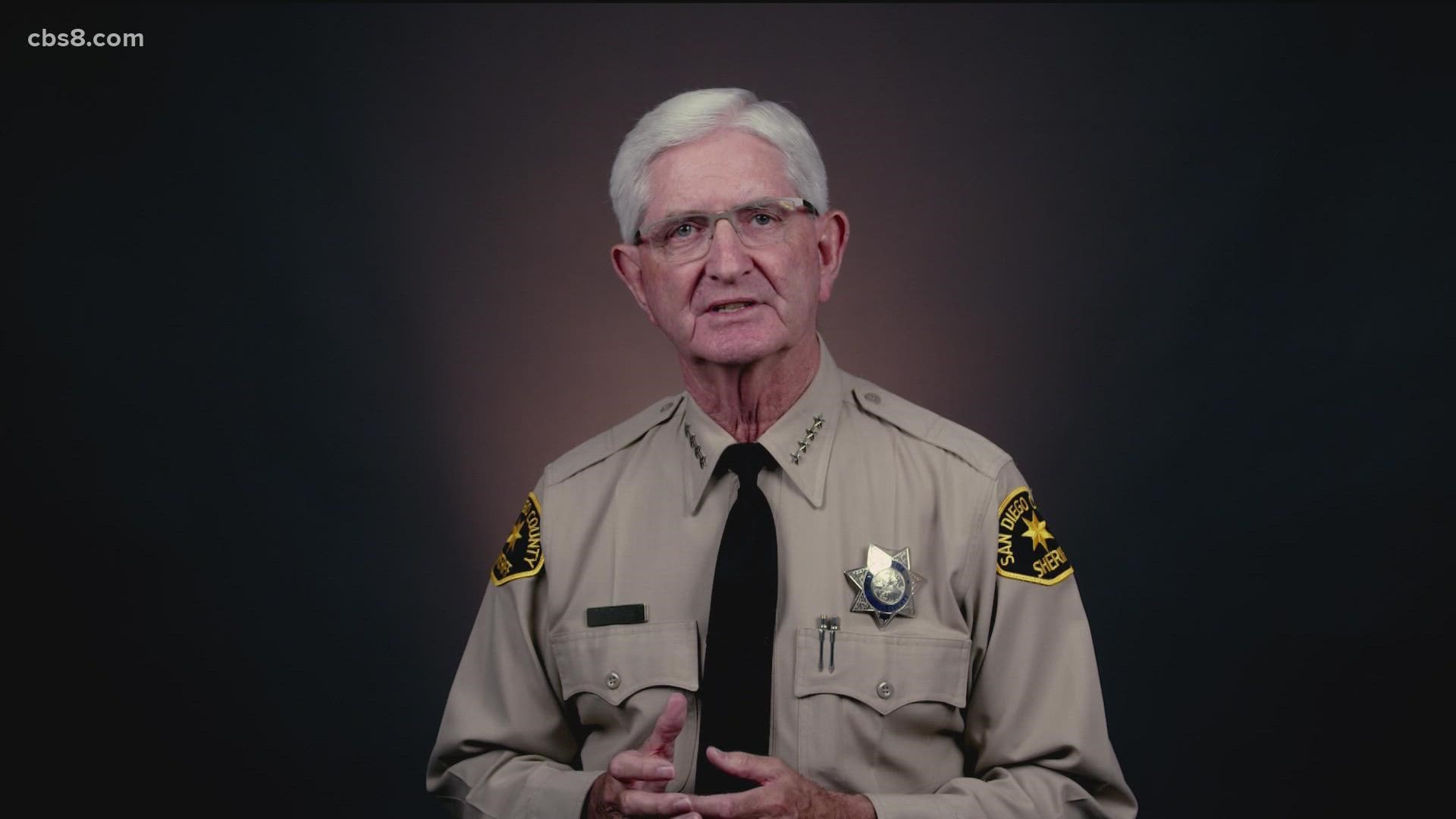SAN DIEGO — Sheriff Bill Gore reportedly was shocked by backlash from the medical community over his release of a “public safety video” on the synthetic opioid, fentanyl.
The statement came in an interview with the San Diego Union-Tribune before Sheriff Gore canceled interviews with other news media outlets, including News 8.
The edited video – released by the San Diego County Sheriff’s Department last week – showed body cam video of a San Marcos deputy collapsing after testing drugs in the field, later confirmed to be fentanyl.
“Being exposed to just a few, small grains of fentanyl could have deadly consequences,” Gore said in the video, posted on social media and on the sheriff's website.
Some in the medical community criticized the video as perpetuating a false narrative that merely touching or accidentally inhaling fentanyl can cause a first responder to overdose.
“This video is misinformation, and nobody should believe what's in this video,” said Dr. Ryan Marino, a medical toxicologist with Case Western Reserve University in Ohio.
Dr. Marino first criticized the video in an interview with the New York Times. He told News 8 it was impossible to accidentally overdose while testing fentanyl in the field, as depicted in the video.
“Everyone should care about fentanyl overdoses. I think everyone should have NARCAN and be prepared to use it, but this video is incorrect and is going to cause a lot of harm,” Dr. Marino said.
In an interview with the Union-Tribune, Sheriff Gore admitted he had no blood test reports to confirm the deputy actually overdosed.
“Gore said he, not a doctor, concluded that Deputy David Faiive suffered an overdose from incidental contact with fentanyl in the July 3 incident featured in the video.,” the newspaper reported.
“I’m sorry, my mind didn’t go to, oh our deputy fainted, our deputy had a panic attack. It just didn’t go there. What was the other logical explanation— to my mind it was an overdose from the drug, from fentanyl,” the UT quoted Gore as saying.
Some of the misinformation about fentanyl risks may have come from a 2016 Drug Enforcement Administration press release that said, "Just touching fentanyl or accidentally inhaling the substance during enforcement activity or field testing the substance can result in absorption through the skin and that is one of the biggest dangers with fentanyl." The press release is still posted on the DEA website.
A DEA spokesperson did not respond to multiple messages from News 8 seeking comment as of Tuesday night.
In 2018, activist Chad Sabora posted a video on Facebook, where he poured fentanyl powder into the palm of his hand to demonstrate that fentanyl cannot be quickly absorbed through the skin.
Leo Beletsky, an associate professor with UC San Diego School of Medicine, said he’s glad the false narrative about fentanyl may finally be debunked.
“Law enforcement is kind of considered an expert on drug issues and they often aren't,” said Beletsky. “And I think that it's really refreshing, actually, that you are doing this and other news outlets are finally waking up to the fact that oftentimes law enforcement is wrong on drugs.”
Gore told the Union-Tribune the deputy has agreed to sign a release so his medical records could be made public. Currently, however, it remains unclear whether a blood test was conducted at the hospital to confirm if fentanyl was in the deputy’s system.
WATCH: San Diego County Sheriff's Department fentanyl public safety video:

